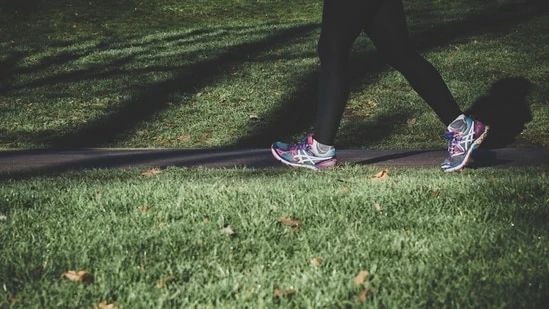Small, simple habits can sometimes have outsized effects on your health, often in ways you wouldn’t expect. From stepping outside in the morning sun to taking a few minutes for deep breathing, everyday actions can boost mood, improve blood sugar control, and even support better sleep.
Dr Kunal Sood, an anesthesiologist and interventional pain medicine expert, has outlined such everyday habits that have surprising health benefits. In an Instagram video posted on October 3, the doctor reveals six daily habits you can practice every day – ranging from walking after meals to taking cold showers – and explains why they are beneficial.
Cold showers improve mood
According to Dr Sood, cold exposure can trigger a surge of norepinephrine, which lifts mood and increases alertness. He explains, “Trials show hot-to-cold showers can reduce self-reported sick days and raise perceived energy. Evidence for depression is limited but promising.”
Walking after meals balance glucose spike
Dr Sood suggests that walking for 10 to 30 meals after eating meals helps balance glucose spikes. It also “helps with reflux, and can prevent post-meal drops in blood pressure in older adults. Best results come from short walks spread throughout the day.”
Lifting weights lowers insulin
The doctor highlights, “Resistance training increases GLUT4 transporters in muscle, improving insulin sensitivity and lowering HbA1c in type 2 diabetes.” This lowers insulin levels and Dr Sood also adds, “More muscle mass also enhances glucose handling and body composition.”
Morning sun improves sleep
Exposure to bright sunlight in the morning helps regulate your circadian rhythm. Dr Sood, “Bright light in the morning helps anchor your circadian rhythm, making it easier to fall asleep at night.” Additionally, he also mentions studies that suggest exposure to sunlight benefits office workers, and those struggling with insomnia, delayed sleep phase, and chronic pain.
Deep breaths lower blood pressure
According to Dr Sood, slow breathing – approximately six breaths per minute – reduces activity of the sympathetic nervous system and improves blood pressure control. He suggests, “Practicing daily for 10-15 minutes can lower systolic pressure by 3-8 mmHg on average.”
Standing for 5 minutes hourly has many benefits
Dr Sood points out, “Breaking up long sitting periods with light walking or standing improves blood sugar, insulin, and blood pressure. Walking is best, especially after meals, as it engages the calf muscles and boosts circulation.”
